Sex Ed 101: La Salle Strives to Strike a Balance Between Scientific and Religious Education Around Birth Control and Sexuality
Ms. Hudson aims to provide students with a complete and unbiased education around sexuality and birth control.
May 8, 2019
Beginning to navigate romantic relationships is a large part of the transition into maturity that adolescents experience throughout their teenage years. As adolescents start to explore this new, uncharted territory of relationships, they are also introduced to a wide variety of unfamiliar concepts such as morality and self-discovery, as well as the particularly awkward topic of sexuality.
Generally, sexuality is a topic danced around by students and teachers alike when addressed in an academic setting. The subject is often dealt with gingerly and timidly in classes. This delicate approach is undoubtedly deserved, given that all-too-familiar feeling of squeamish discomfort most students experience the moment a teacher utters the words “penis” and “vagina.”
It’s likely that you feel uncomfortable merely reading those words in this article. But sexuality is, in all its awkwardness, a significant part of adolescence that cannot be ignored in classrooms. It is a blatant reality that many teenagers from all different backgrounds do choose to be sexually active.
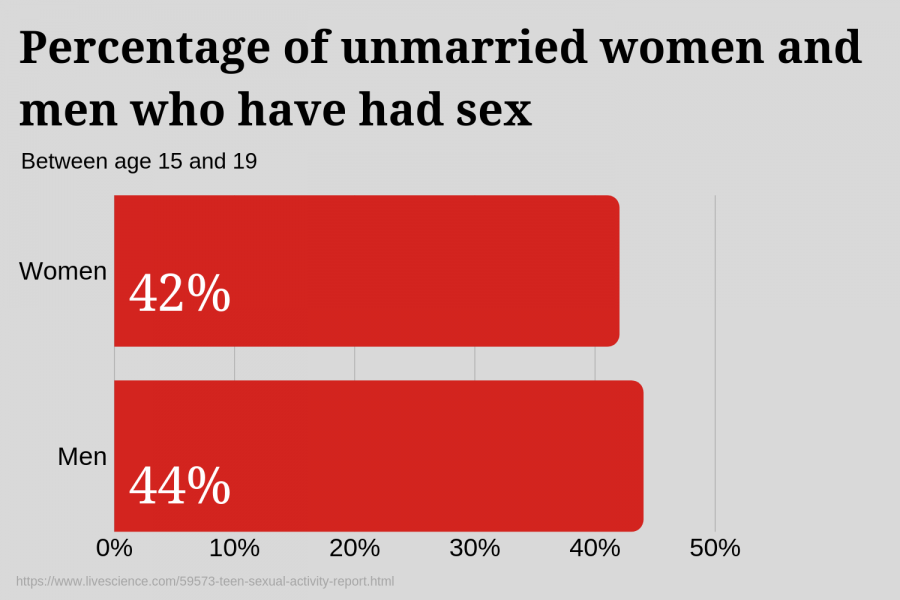
At La Salle, conversations around sexuality happen primarily in the Health 2 class, which addresses all aspects of sexuality from a scientific standpoint. The sex education unit in Health 2 covers a wide range of topics, including detailed explanations about birth control. These conversations continue in junior religion classes from an ethical standpoint, teaching students about the Catholic Church’s beliefs around contraception and premarital sex.
It’s no secret that premarital sexual activity can have consequences, including teen pregnancy and sexually transmitted diseases and infections, or STDs and STIs. The United States has the highest teen birth rate and some of the highest rates of STD infection in the industrialized world.
Because of these risks, public school curriculum in all fifty states involves sex education in some way, shape, or form; sex education differs state-to-state in regards to the extent of involvement and depth within the curriculum. Some schools have an abstinence-only-until-marriage program, while most others have a comprehensive sex education program.
Abstinence-only programs can be generally defined as those that encourage and expect young people to remain abstinent until marriage, while also teaching about relationships and the anatomy of reproduction. These programs present abstinence as the only acceptable option to prevent pregnancy and STD/STIs, and teach from an ethical perspective that premarital sex is immoral.
Comprehensive sex education programs, on the other hand, can be defined as those that encourage abstinence as the safest choice but also encourage young people who choose to be sexually active to always use some form of contraception. These programs educate students about birth control in its totality, consent, the anatomy of reproduction, and relationships.
Despite the somewhat common notion that abstinence-only sex education programs are effective in delaying premarital sex and reducing teenage pregnancy, research shows that students enrolled in abstinence-only programs were no more likely than those enrolled in comprehensive programs to delay sexual initiation, to have fewer sexual partners, or to abstain entirely from sex. Furthermore, studies show that comprehensive sex education, despite its openness, does not lead to promiscuity among teenagers and does not encourage premarital sexual activity.
Taking into account the Catholic Church’s position on contraception and premarital sex, it can be hard for Catholic schools like La Salle to provide students with a well-rounded, scientific education around safe sex, while also teaching students about what the Catholic Church believes to be moral.
So what do classes at La Salle teach about birth control and sexuality?
Catholic teachings about birth control and sexuality are separate from scientific teachings around these topics at La Salle. Consent, birth control, and healthy relationships are emphasized to freshmen and sophomores during the sex education units in Health 1 and 2. Meanwhile, healthy relationships and the Catholic Church’s viewpoint on artificial birth control and premarital sex are taught in Catholic Moral Thinking junior year.
In regards to birth control, health classes touch on what the Catholic teaching is, but this and everything else in the unit is generally with the purpose of informing students, not directing their decisions.
“I see it as my role to give information,” Health 2 teacher Ms. Caitlin Hudson said. “That’s where the health class comes in is that we’re giving information, just kind of the science and biology of things. And then I think larger discussions of life choices happen in the religion classes.”
Ms. Hudson’s Health 2 class, which is mandated for sophomores, covers a wide range of topics during the sex ed unit. Students learn about not only the anatomy of reproduction, but also how people practice safe sex, how people give and receive consent, and how to respect all relationships and people.
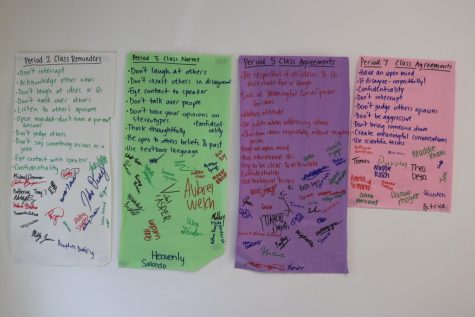
Ms. Hudson’s second semester Health 2 classes created guidelines prior to starting the sex education unit.
Ms. Hudson aims to help her students explore ways to think critically about healthy relationships, as well as understand differences in sexuality, gender identity, and sexual orientation. She makes sure to be clear that the sex education unit is purely for informational purposes, and that she is not offering suggestions or ideas as to the personal choices students make.
“I thought it was good,” junior Mary Tamashiro said. “I liked that class. It taught a lot of useful information. Mr. Devenney [a previous Health teacher at La Salle, who retired last year] taught us about all the different types of birth control and the pros and the cons.”
Many students find it important to have comprehensive sex education, in which they can learn about the different types of birth control, their rates of effectiveness, and how they work. A non-scientific poll on The Falconer’s Instagram story found that out of 226 members of the La Salle community, many of them students, 216 said that it is important to include birth control as part of the sex education unit, even at a Catholic school.
“I think that [the birth control unit] was really good to learn because I personally didn’t know a lot [before],” said senior Maria Smith, speaking about her experience in Health 2. “I think that learning more as teenagers makes you more healthy going on forward and if you choose to be sexually active.”
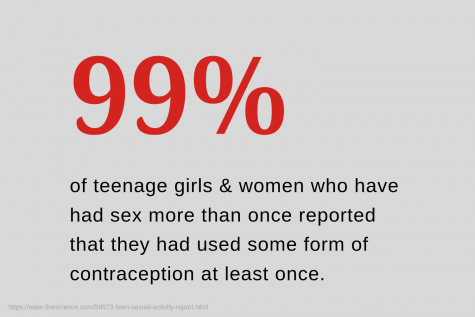
The Catholic Church’s stance on birth control doesn’t exactly walk hand-in-hand with the comprehensive sex education curriculum that takes place in La Salle health classes. Mr. Gary Hortsch, Religious Studies teacher and La Salle’s Director of Faith, supports the Church’s teaching and believes that the school should teach students about sexuality through a Catholic lens.
“I believe the wisdom of the Church’s teaching on the unitive and procreative design of sexual expression between marital couples safeguards the dignity of people, places a higher value on the power of sexual union between committed marital spouses, and provides the most stable cradle for new life to begin and flourish,” Mr. Hortsch said.
“As for what should La Salle promote as a means of birth control – abstinence,” Mr. Hortsch continued. “While complex pressure abounds otherwise, there is tremendous freedom in abstinence. There is the freedom to become an adult without the pressures or concerns of an unplanned pregnancy or sexually transmitted disease. There is the freedom to get to know, date, and discover relationships apart from the complexities of union created by sexual expression.”
The Catholic Church teaches that every sexual act should be for the purpose of unifying a married couple in a lifelong, supportive relationship and should be open to procreation. Mr. Edward Kendrick, who teaches junior and senior religion classes at La Salle, said it’s a common misconception that the Catholic Church teaches that the only purpose for sex is procreation, thus disapproving of birth control. Rather, the reason that the Church looks down upon birth control is because it doesn’t fulfill one of the two essential purposes for sex — unity and procreation.
Mr. Kendrick’s thoughts on sex education align with the Catholic Church’s beliefs. He is adamant in his belief that sex is not only for the purpose of procreation, but is also equally as important for the unity and intimacy of a married couple. Mr. Kendrick feels that sex education at La Salle should emphasize the relational aspects of sexuality and the fact that sexuality is something that flows from one’s relationship with God and others.
“If we only teach that you need to have consent and that you need to be using birth control, if those are the two moral factors, then all of the relational aspects are neglected,” Mr. Kendrick said. “Those two things aren’t the recipe for a good romantic relationship.”
In fact, a large portion of Health 1, a freshman course that is taught by Mr. Chris Sulages, is devoted to discussing the hallmarks of a good relationship. The relational aspects of sexuality are continually addressed and revisited during Health 2, in which students more deeply explore the topic.
As for his personal opinion as to what La Salle should teach about birth control, Mr. Kendrick believes from an ethical standpoint that La Salle shouldn’t teach anything the Catholic Church doesn’t believe in, yet from a scientific standpoint he can understand how comprehensive sex education could be beneficial. “From a moral perspective, I would say no [to teaching about all the different forms of birth control],” Mr. Kendrick said. “From a medical perspective I could understand saying yes.”
Mr. Kendrick wouldn’t necessarily expect someone to embrace the Church’s position without a relationship with God or a fundamental Christian worldview. “It’s not lost on me that people without that relationship with God, people without that perspective, are going to find abstinence-only education or the Church’s teaching on birth control to be really strange or ineffective,” he said. “I think that the school should continue to present the Church’s teaching on birth control but ground it with a good relationship with God and a healthy way of looking at other people.”
Overall, the two health courses at La Salle give students a wide-ranging education about birth control, gender identity, sexual orientation, consent, and relationships. Ms. Hudson focuses on providing students with a comprehensive sex education rather than only giving them certain parts of the full picture around birth control, despite La Salle’s Catholic identity and the Catholic belief that contraception is immoral.
“I think it is important to have a comprehensive [sex education] program at La Salle so that students have a safe and informative environment to learn about all topics that relate to their lifelong health,” Ms. Hudson said. “In health class we have an informational focus, and students think about the morality and philosophical questions behind reproductive health in religion class.”

Sophomores in Health 2 discuss topics including sexuality, birth control, and consent during an interactive activity.
La Salle’s overall education around sexuality and birth control aims to teach students about all aspects of sexuality while also presenting the Catholic Church’s teaching.
“Students are aware before they come to health class that birth control exists, so I don’t think we’re doing any damage by having that be included in the curriculum,” said Ms. Alanna O’Brien, La Salle’s Vice Principal of Curriculum and Professional Development. “But we do want students to understand what the Church teaches and why it teaches that.”
“We also recognize that our students are aware that there [are] other things out there besides the Catholic Church perspective,” Ms. O’Brien added. “So to pretend that those don’t exist wouldn’t be doing anybody any favors.”
There is no strong statistical evidence that abstinence-only sex education programs increase rates of sexual abstinence. One large study found that students in the observed abstinence-only programs had a similar number of sexual partners and a similar age of first intercourse as students in comprehensive sex education programs. It also found that participants in both groups had the same rate of unprotected premarital sexual intercourse.
Studies show that a substantial amount of teenagers will choose to be sexually active, no matter what type of approach their high school takes in regards to sex education. Based on data gathered from 2011 to 2015, 42% of females ages 15 to 19 have had sex, and 44% of males in that age range have had sex.
“[Some teenagers] are going to [have sex] regardless so you might as well know what to do to protect yourself,” Tamashiro said. “You can’t really stop what teenagers do, but you can prepare them.”
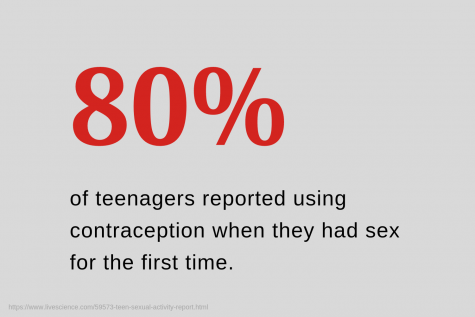
When La Salle health classes teach students about alcohol and drug use, the teachers are not encouraging the use of these things; rather, they are informing students about something that undeniably exists in our world. Likewise, the fact that La Salle classes educate students about birth control doesn’t mean that teachers endorse or promote premarital sex or the use of contraception.
“We’re very careful that we’re not advocating for anything that would go against what the Church would teach,” Ms. O’Brien said. “But that doesn’t mean that we pretend that what the Church teaches doesn’t exist.”
Ultimately, La Salle’s education around sexuality gives students a comprehensive education while also presenting the Catholic Church’s teachings.
“[Whether or not] La Salle [teaches] about condoms is not going to be my end-all-be-all as to whether La Salle is a good Catholic school or not,” Mr. Kendrick said. “But are we presenting the heart of the Gospel? And does the way we teach and live out our romantic relationships flow from that?”
Rather than tell students what to do and what not to do, teachers and administrators aim to provide students with all the information about topics and invite students to think critically and independently.
“We’ve always used the philosophy of [education as] an invitation rather than an indoctrination,” Ms. O’Brien said. “We want kids to be critical thinkers and we want them to have all the information that they need to be critical thinkers. Part of being a critical thinker in a Catholic school is understanding not just what the Catholic Church says, but why it says it. But that doesn’t mean that we think that we are going to graduate students who all buy into what the Catholic Church says.”
From an outside perspective, the idea of La Salle taking a comprehensive approach to sex education could seem like something that could cause conflict, considering the school’s Catholic identity.
“I don’t want it to be controversial,” Ms. O’Brien said. “We want kids to have the information they’re supposed to have, but also we recognize that we want kids to be thinkers, and we want kids to be healthy, and we want kids to feel grounded.”
Despite this potential friction between religion and health classes at La Salle, the administration and teachers work to balance the informational aspects of sex education with the Catholic Church’s teaching on sexuality.
By keeping the two viewpoints distinct yet equally important, La Salle focuses on sufficiently informing students in order to enable them to become critical and independent thinkers, live by Lasallian values, and tackle the growing pressures of adolescence with an informed and open-minded perspective.


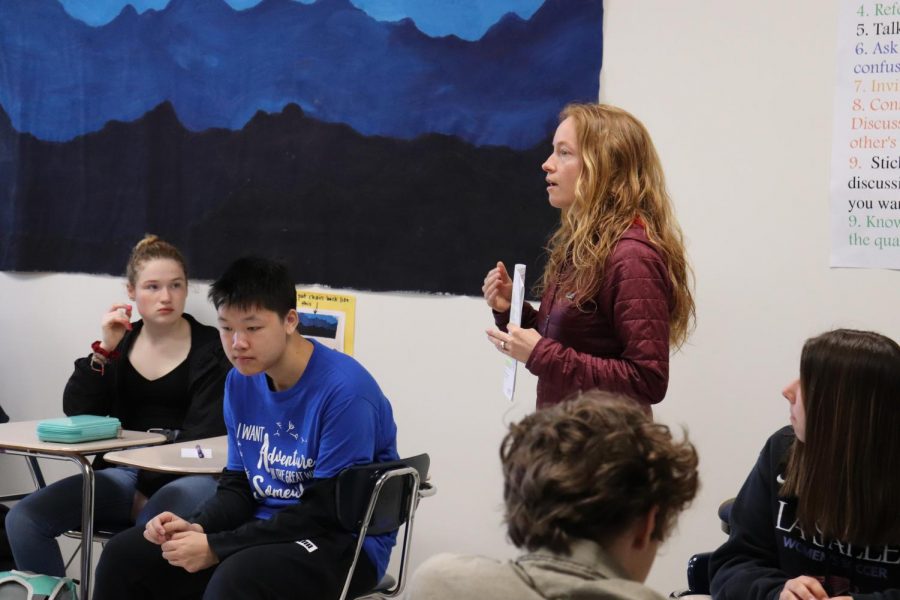
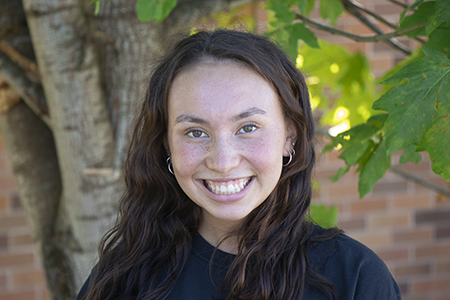



Mallory • May 10, 2019 at 10:05 am
Maddie, this article is sooooooo amazing!!! Thank you for informing others about this important topic!
Olivia • May 10, 2019 at 10:04 am
wow, this is so well written maddie! i learned so much from this!
Summer Tran • May 9, 2019 at 8:02 am
Very well written, Maddie. Way to go!
Mrs. Orr • May 9, 2019 at 7:51 am
Thanks Maddie, I appreciate all of the different views and thoughts from the faculty.
Mr. Banks • May 9, 2019 at 7:49 am
I appreciate the diversity of voices in this piece. Thanks for interviewing a member of the Health faculty, a member of the Religious Studies department, the Director of Faith, and one of our vice principals — that’s a great range of voices from all across La Salle.
“Catholic teachings about birth control and sexuality are separate from scientific teachings around these topics at La Salle.” I wonder if students would benefit from these “teachings” not being separated — what if there were covered robustly and comprehensively at the same time?
Maya • May 8, 2019 at 8:01 pm
Maddie!!! This article is so well written and informative. I’m so proud of you! 🙂